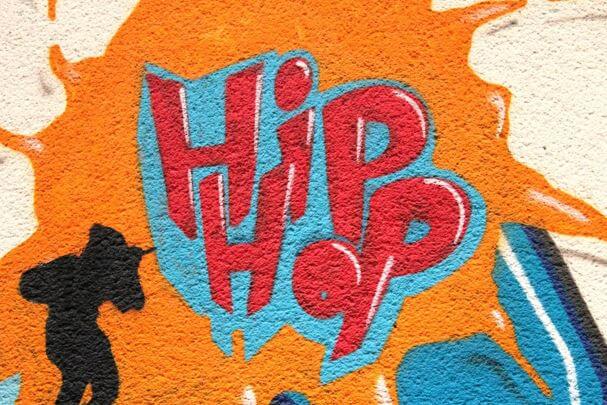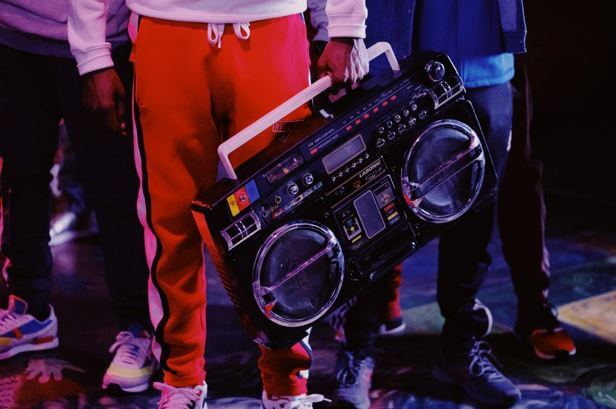
https://unsplash.com/photos/Qcl98B8Bk3I
Music can be considered a kind of universal language: it exists in all cultures and can be perceived regardless of whether you understand the native language of its creator. Music also plays an important role in the study of foreign languages, as many people in awe of foreign musician’s work were inspired to learn the language in which they perform.
Today, we will discuss how hip-hop songs can help you get naturally better at a chosen language by simply enjoying music! Keep reading for more info and instructions.
H2: Why Learn Languages via Hip-Hop Songs?
Songs are not an alternative to classic textbooks, but still, a great educational tool that combines studying with fun. You may be wondering exactly how listening to music can help you learn a new language. Let’s find out!
Train your listening skills. By listening to songs in a foreign language, you will begin to better understand a language by ear in time. You will also get much better at telling apart accents.
Learn slang. Once you hear many hip-hoppers, you’ll learn copious slang words and enrich your speech with colloquialisms and jargon vocabulary, idioms, phrasal verbs, etc.
Learn in context. Words are learned much faster via songs than via working with a textbook or dictionary, as you will more likely remember the context in which words were used, or even memorize entire phrases.
Repeat. Hip-hop is an especially great learning tool because of its repetitive nature. Hearing the same words and phrases over and over again will help you memorize them faster and retain information longer.
Songs are rhymed. We all know that memorizing a rhymed text is much easier than prose.

https://unsplash.com/photos/0wMLZNbE8Ac
H2: Learn by Listening To Hip-Hop: A Step-By-Step Guide
Now that we established that hip-hop songs can potentially help language learners, let’s decipher how one goes about bettering their language skills through music.
Choose a song. Pick a song you genuinely like and wish to learn more about.
Read lyrics. To understand songs fully, find their lyrics and familiarize yourself with them.
Check the lyrics’ translation. It’s advisable to look up the song’s translation, but don’t expect to find a word-for-word one. Song translations and other types of text translation are tricky, especially if the language pair in question excludes English. More complicated translations often require a specialist who can easily perform Swiss German translation or handle any other language combination.
Mark unfamiliar words and look them up. This way you’ll have a clearer idea about words, idioms, or slang terms you don’t understand.
Play a song repeatedly while reading lyrics along. Performers often heavily distort some words or pronounce them differently due to their accents. If you simply try to perceive words by ear, you may end up memorizing them incorrectly.
Learn lyrics. After you have read and deciphered the lyrics, start memorizing them. If you memorize a song by heart, you are not likely to easily forget it.
Analyze grammar. When you understand and memorize the text, analyze its grammar. This way you learn recognizing rules (and lack thereof) of a language in live speech and apply them yourself.
Sing along. It’s important to say lyrics out loud as you practice – it will benefit your speaking. Try to maintain the performer’s intonation, accent, and convey emotion.
Listen to songs every day. The more often you repeat a specific song, the faster and better you will remember it.
Once you understand and memorize your favorite tracks you’ll be able to use words and whole phrases from them in your life without even noticing it!

https://unsplash.com/photos/Kj4o6jCPulI
H2: What to Watch Out For When Learning From Hip-Hop Songs
We have already established that learning through music is a solid idea, but it does have some hidden dangers you better know about.
Messed-up grammar. Please note that most musicians disregard grammar rules, so we advise you not to blindly trust in hip-hop lyrics’ accuracy.
Double negatives. Most hip-hop singers and rappers love using double negatives, although it’s not strictly right. Watch out for phrases like “ain’t no”, “don’t have no”, “nobody isn’t”, etc. Songwriters sometimes use such phrases to emphasize negative meaning, but a lot of times they do it unintentionally.
Too much slang. Although knowing typically used words and phrases is very handy and important for having a well-spoken language, overutilizing them is not advisory. Those who rely on hip-hop music for their vocabulary often have a hard time finding fitting words to describe something, as their lexicon is brimming with terms that often are inappropriate for a situation they are in.

https://unsplash.com/photos/qQzw8jPvip8
H2: Crank up the Tunes!
Everyone who is just starting to learn foreign languages is looking for hacks that will help them learn the language fast and with little effort. Although such an approach is rarely fruitful, listening to music in a target language is among the few “magic pills” that can actually help you learn a new language effectively. Therefore, we will prescribe some good hip-hop tunes to you today so you can streamline your language learning!
BIO: Merissa Moore
Merissa is an accomplished content creator who spent years perfecting her craft while working internationally. She loves letting her readers in on the knowledge she obtained, as well as collecting and analyzing data to deliver condensed value to her audience. Her approach to writing, unique style, and friendly relations with readers make Merissa a singular specialist. Besides work, Merissa also finds joy in reading poesy and flower arranging.
